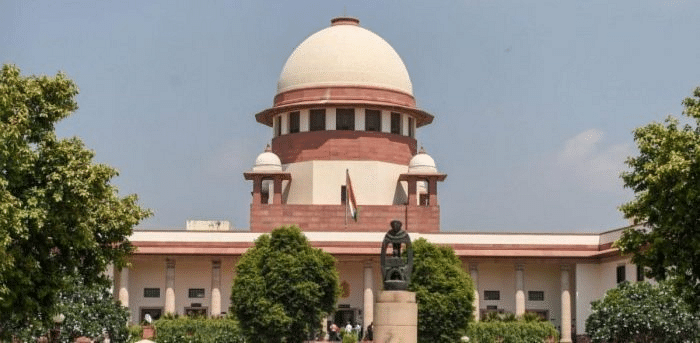
The Supreme Court has dismissed an appeal filed by the Delhi government in a cattle smuggling case for being time-barred, after noting the department concerned took 20 months in filing the matter, due to "gross incompetence and inefficiency" of its officers.
The government counsel said it was really concerned with the Delhi High Court's order letting off the convict with the period of five years imprisonment already served by them.
A bench of Justices Sanjay Kishan Kaul and R Subhash Reddy, however, rejected the plea.
"In our view, if it was really such an important legal issue to be examined, we would have expected bare minimum efficiency from the government department, even keeping in mind the so-called inefficiencies which permeate them. That has certainly not happened nor is anybody is ever made responsible for their gross incompetence," the bench said.
The court said it has repeatedly emphasised that the period of limitation cannot be ignored by government and authorities and the Supreme Court of India cannot be a walk in place for it.
"We have said that if the government machinery is so inefficient and incapable of filing the appeals or petitions in time, the solution may lie in requesting the Legislature to expand the time period for filing limitation for the government authorities because of their gross incompetence," the bench said.
The court said if the statute subsisted requiring the appeals to be filed in the prescribed period of limitation. No doubt some leeway is given for government inefficiencies but with advancement of technology, a greater leeway can't be given by the court to the government, it added.
The court also noted no action has been taken against any officer for the inordinate delay.
In the instant case, the High Court had on March 15, 2018 reduced the sentences of the convicts from 10 years to five years jail term under various provisions of the IPC, the Prevention of Damage to Public Property Act, (PDPP Act) and the Delhi Agriculture Cattle Preservation Act and under the Arms Act. The HC found a number of lacunae in the case including on the aspect of common intention.
The top court noted the appeal was filed on January 10, 2020.
